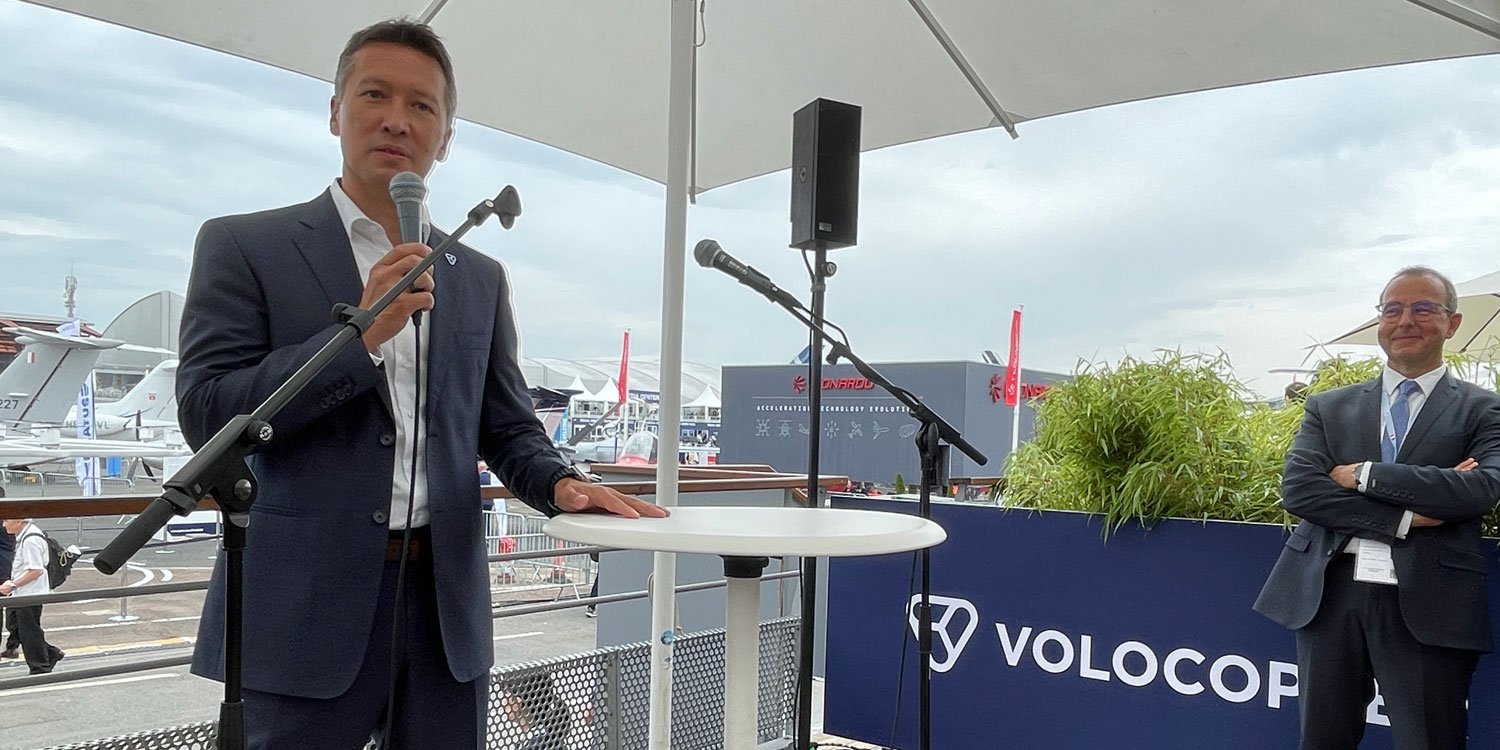Click Here to View This Page on Production Frontend
Click Here to Export Node Content
Click Here to View Printer-Friendly Version (Raw Backend)
Note: front-end display has links to styled print versions.
Content Node ID: 414466
Some lucky Parisians and Olympic Games visitors are set to become the world’s first paying passengers in an eVTOL aircraft. Volocopter on Tuesday confirmed it is on schedule to secure EASA type certification for the two-seat VoloCity aircraft in time for the games, which open on July 26, 2024.
At a Paris Airshow press conference, Edward Cartwright, director general of airports group ADP, confirmed that five aircraft will fly passengers between five vertiport sites, including two airports, Charles de Gaulle and Le Bourget (site of the Olympic media village), Saint-Cyr (near the equestrian center at Versailles), the Issy les Moulineaux helipad in the southern Paris suburbs, and a new landing site on a barge in the Seine River next to the Gare d’Austerlitz rail station. Cartwright described the process for building the Gare d'Austerlitz site as challenging, and ADP plans to award a construction contract soon.
The plan depends on Volocopter getting approval from EASA by the end of the second quarter of next year. Volocopter CEO Dirk Hoke said in July the company will start flying the 200 or so flight hours it needs to satisfy the European air safety agency and it expects to complete the process by the spring. The German manufacturer plans to apply for an air operator certificate imminently and will start flying a fixed-wing aircraft to demonstrate its competence.

If Volocopter makes its deadline for type certification, it will likely be the first Western company to meet that milestone. Rivals including Joby, Archer, Beta Technologies, Lilium, Eve, Supernal, and Vertical Aerospace are all now working to dates in 2025 and 2026 to complete this process.
In China, EHang says it will soon gain domestic approval for its two-seat EH-216 autonomous vehicle. And in another press conference on Tuesday, AutoFlight said it expects the Civil Aviation Administration of China to sign off on a cargo-carrying version of its Prosperity I vehicle.
Hoke acknowledged that it is by no means certain that EASA will grant approval in time for the Olympics, given that the regulator holds eVTOLs to the same safety standard as airliners, meaning they must be assured of suffering no more than one accident in a billion flights, which he said amounts to never. As a plan B, Volocopter could seek a special permit limiting operations to the duration of the games. The company already holds design and production approvals from EASA.
“If you can fly somewhere like Paris, you can fly anywhere,” Hoke said, pointing to the restrictions on helicopter flights around the French capital. He said Volocopter is excited to take the opportunity to demonstrate to the local population that eVTOL air taxis can be an affordable part of the public transportation network. Initially, flight prices will compare to an expensive taxi service, but the company aims to achieve a price of around three or four euros per seat per passenger kilometer.
Volocopter is working on a larger eVTOL vehicle now designated as the VoloConnect, probably with four seats. Hoke said the payload and range for the new aircraft will start to increase meaningfully once battery technology gets beyond an energy density of 400 Wh/kg.